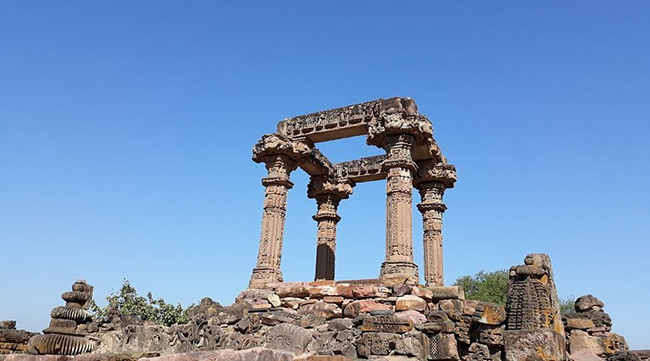Hindola Torana: A Timeless Stone Arch of Devotion and Architecture
Located in Madhya Pradesh, India, the Hindola Torana is a remarkable example of early Indian architecture and religious symbolism. This intricately carved stone gateway stands near the ancient ruins of Dhar, once the capital of the Parmara dynasty.
Dating back to the 9th or 10th century CE, the Hindola Torana (meaning “Swinging Gateway”) is thought to have been a ceremonial or processional arch, possibly associated with a now-lost temple dedicated to Lord Vishnu or Shiva. The word “Hindola” translates to “swing” in Sanskrit, referring either to the visual impression of the structure or to festive rituals involving swinging deities.
Architectural Features
The gateway is composed of two upright stone pillars topped with a horizontal lintel, forming a freestanding torana.
Intricate carvings depict divine figures, floral motifs, and geometric patterns, reflecting the mastery of Parmara artisans.
Though simple in structure, its decorative richness and symbolic importance make it a notable heritage monument.
Cultural Significance
Toranas like this served as ritual entrances to temples or sacred spaces and symbolized a threshold between the material and spiritual realms.
The Hindola Torana is often compared to similar gateways found in Buddhist, Hindu, and Jain architecture across India.
Today, the Hindola Torana is preserved as a protected monument by the Archaeological Survey of India (ASI) and stands as a silent witness to India’s rich architectural and spiritual traditions.
Sources:
Archaeological Survey of India (ASI)
Hindola Torana” – Wikipedia
Books and Academic Sources:
- Indian Architecture (Hindu and Buddhist Period) by Percy Brown
- The Art and Architecture of India by Benjamin Rowland

